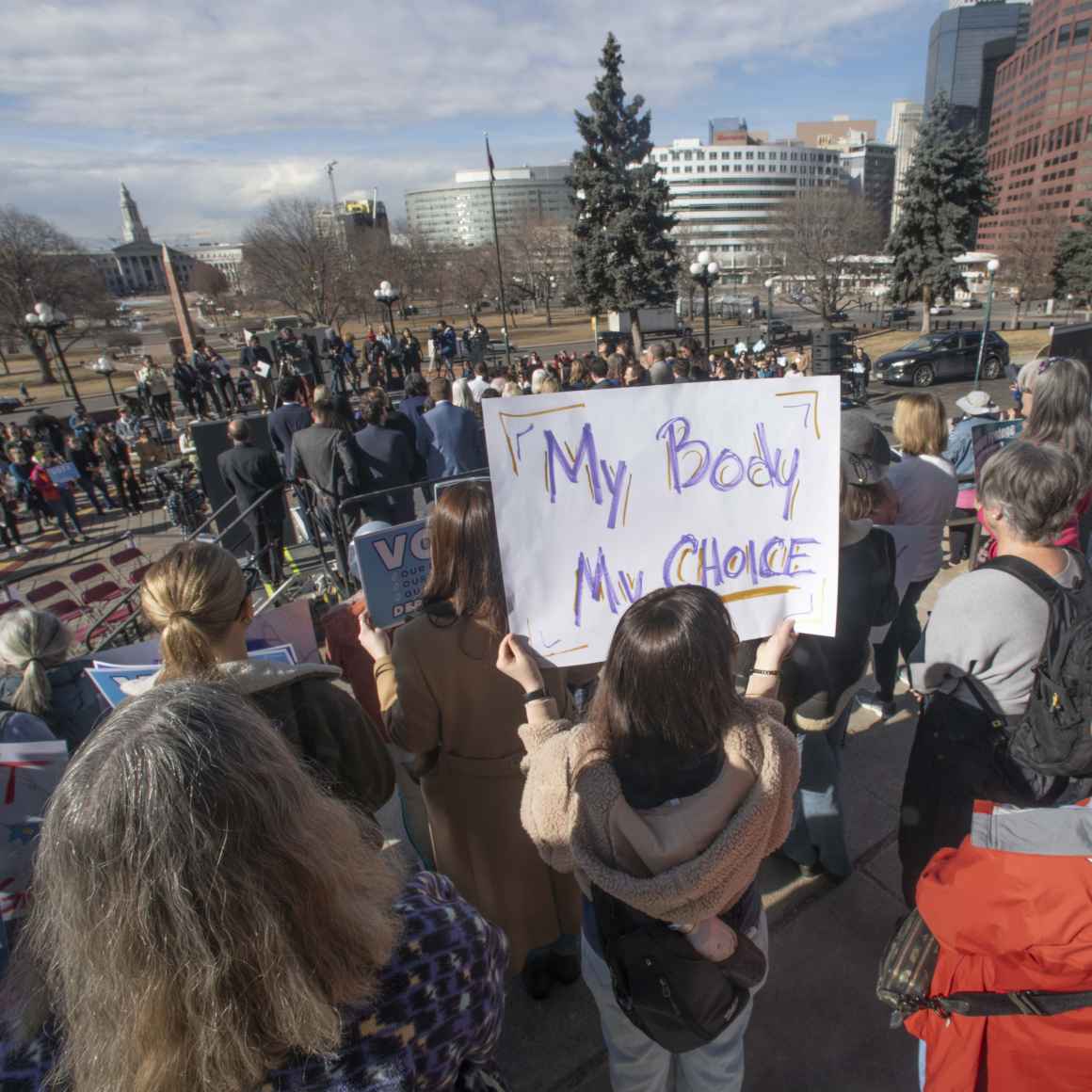By Aurea Bolaños Perea, Strategic Communications Director at COLOR
When the Colorado Organization for Latina Opportunity and Reproductive Rights (COLOR) was founded in 1998, our founding mothers, our Madrinas, sought strategies to overcome increasing HIV rates and other health disparities impacting our community. COLOR was founded to ensure Latines and their families are empowered with the resources they need to make healthy decisions about their bodies, sexualities, and family planning. COLOR continues to be the only Latina-led reproductive justice organization in Colorado.
Our Madrinas knew the inequities they witnessed and endured were rooted in centuries of deliberate and systemic oppression. Grounding their work in reproductive justice — a human-rights-based framework — they envisioned how COLOR would offer a comprehensive, intersectional resistance to these injustices, using community knowledge to prioritize the needs of the Latine community in Colorado.
Reproductive justice is more than a label. It is a four-tenet framework that provides specific parameters to guide anti-oppression work. Reproductive justice affirms each person’s human rights to:
- Decide when and if they will have a child and the conditions under which they will define and expand their family;
- Decide if they will not have a child and their access to preventing or ending a pregnancy in a safe and dignified manner;
- Care for the family they already have with the necessary social supports in safe environments and healthy and sustainable communities; and
- Express gender identity and sexual orientation freely.
People must be able to practice these rights without fear of violence, discrimination, separation, surveillance or retaliation from individuals or the government.
In Colorado, the injustices Latinas often face are connected. The community experiences high health inequities — including alarming rates of HIV due to government negligence — as well as barriers to information or misinformation explicitly targeting communities of color; stigma; a lack of affordable health care coverage; and a lack of access to quality education. Among our undocumented community, there are also health impacts associated with deportation and family separation, and there have been accounts of forced or coerced sterilizations.

Part of our mission to combat these historic inequities is harnessing people power. We know that our voices and our stories must be heard at the decision-making table. We know what is at stake because we’ve lived in a country where access to abortion care and many forms of reproductive healthcare are not accessible to us and our communities.
COLOR is proud to co-chair the Coloradans for Protecting Reproductive Freedom campaign. Abortion rights are essential to democracy. Guaranteeing equitable access to reproductive healthcare such as abortion, is necessary to ensure the well-being of our communities across our state — and our country.
Proposed initiative 89 states: “A change to the Colorado constitution recognizing the right to abortion, and, in connection therewith, prohibiting the state and local governments from denying, impeding, or discriminating against the exercise of that right, allowing abortion to be a covered service under health insurance plans for Colorado state and local government employees and enrollees in state and local governmental insurance programs.”
But legality without access is not freedom.
On April 12, 2024, just days after the Arizona Supreme Court gave the go-ahead to enforce an 1864 law that bans nearly all abortions with no exception for rape or incest, the campaign for Proposition 89 announced that it had surpassed its goal of collecting 185,000 signatures and was one step closer to seeing a constitutional amendment to protect abortion from government interference on the November 2024 ballot. Ballot measures like Proposition 89 are our first line of defense against government overreach and our best tool to protect the freedom our communities deserve to lead safe, healthy, self-determined lives.
This is why our community is fighting to enshrine abortion rights in the Colorado Constitution. Reaching our signature goal is a critical step forward in securing a future where abortion rights are protected, respected, and accessible for all Coloradans, regardless of which elected or appointed official is in power.
We need Coloradans to turn out for this moment in history where the movement for reproductive justice calls on us to act for the rights of Coloradans who deserve a future in which they can live authentically without fear, shame, or stigma.